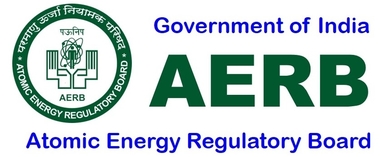International Cooperation
AERB recognizes international cooperation as a measure for enhancing effectiveness of regulatory control and improving regulatory practices taking into account the regulatory experiences and best practices around the world. AERB has been actively involved with various international bodies for exchanges of information and cooperation in the regulation of nuclear safety and radiation protection. Important international cooperation activities of AERB are as follows:
Multilateral Cooperation
AERB recognizes international cooperation as a measure for enhancing effectiveness of regulatory control and improving regulatory practices taking into account the regulatory experiences and best practices around the world. AERB has been actively involved with various international bodies for exchanges of information and cooperation in the regulation of nuclear safety and radiation protection. Important international cooperation activities of AERB are as follows.
International Atomic Energy Agency (IAEA)
International Atomic Energy Agency (IAEA)
AERB has been actively participating in IAEA activities. The staff of AERB participates in various Technical and consultants’ meetings organised by IAEA on a range of topics related to Nuclear Power plants, fuel cycle facilities, radiation facilities, transportation of radioactive materials and illicit trafficking of radioactive materials. AERB has also been participating in IAEA Coordinated research Programme (IAEA-CRP).
AERB takes part in the development of IAEA documents. AERB experts are serving as members in IAEA Safety Standards Committees.
AERB is the national coordinator for IAEA- International Nuclear and Radiological Event Scale (INES), IAEA–Incident Reporting System (IRS) and Fuel Incident Notification and Analysis System (FINAS). AERB participates in all activities related to their functioning.
India is a participant of the Incident and Trafficking Database (ITDB) program of the IAEA. AERB being a national contact point is regularly reporting incidents to ITDB involving illicit trafficking, thefts, losses and other unauthorized activities and events involving nuclear and other radioactive materials.
The Government of India ratified the Convention on Nuclear Safety on March 31, 2005. India is submitting its national report from 4th Review Meeting (in 2008) onwards. AERB prepares the national report of India on the fulfilment of obligations arising from the provisions of the Convention on Nuclear Safety and participates in its Review Meetings. India’s report can be found at https://www.aerb.gov.in/english/convention-on-nuclear-safety.
India has expressed its support for Code of Conduct on the Safety and Security of Radioactive Sources and its Supplementary Guidance on the Import and Export of Radioactive Sources. AERB is the point of contact for the purpose of facilitating the export and/or import of radioactive sources in accordance with the Code and this Guidance.
AERB officials participates as members in the IAEA’s Integrated Regulatory Review Service (IRRS) Missions to various countries.
AERB plays an active role in strengthening the global safety regime and towards this contributes in various meetings, peer review missions and development of safety standards of IAEA. It also utilises experience gained through these safety-cooperation activities towards further augmenting safety regulatory system within India.
Nuclear Energy Agency (NEA)
The Nuclear Energy Agency (NEA) is a specialized agency within the Organisation for Economic Co-operation and Development (OECD), an intergovernmental organization of industrialised countries, based in Paris, France.
The NEA operates under the guidance of the Steering Committee for Nuclear Energy, through a series of specialised standing technical committees. India is participating in two such committees namely Committee on Nuclear Regulatory Activities (CNRA) and Committee on the Safety of Nuclear Installations (CSNI). India’s status in CNRA and CSNI has been enhanced from ‘Adhoc Invitee’ to ‘Participant’ in these committees.
AERB is contributing in following Working Groups of CNRA and CSNI.
-
Working Group on Operation Experience (WGOE),
-
Working Group on inspection practices (WGIP).
-
Working Group on the Regulation of New Reactors (WGRNR),
-
Working Group on Public Communication of Nuclear Regulatory Organisations (WGPC)
-
Working Group on Risk Assessment (WGRisk),
-
Working Group on Analysis and Management of Accident (WGAMA)
-
Working Group on Integrity and Ageing of Components and Structures (WGIAGE)
-
Working Group on Fuel Safety (WGFS)
CANDU Senior Regulators Forum
AERB participates in annual meetings of CANDU Senior Regulators, organised by IAEA, for exchange of information on issues specifically related to safety of PHWRs. The meeting provides a technical platform to discuss the current issues related to improvement in nuclear safety after Fukushima NPP accident, generic issues of CANDU reactors, etc.
AERB is one of the key contributors in CANDU PSA Working Group established by IAEA as suggested by CANDU senior regulators forum. The objectives of the CANDU PSA Working Group are to support regulatory authorities, utilities and designers in their area of PSA by harmonizing regulatory approaches and utilities practices on the use of PSA and to make recommendations to CANDU Senior Regulators Forum.
VVER Regulators Forum
VVER Regulators Forum is for exchange of information and experience on issues specifically related to safety of Russian VVERs. AERB is a member of this forum and regularly contributes to the activities of the Forum. AERB participates in the PSA Working Group, Reactor Physics Working Group of VVER Regulator’s Forum.
Atomic Energy Research (AER)
Atomic Energy Research (AER)
AERB joined the Atomic Energy Research (AER), Hungary as member organization in 2019. AER is an international community of researchers, engineers and operators from countries running the VVER type nuclear reactors. The objective of AER is to promote information exchange among VVER utility staff, Designers, R&D institutes and Safety authorities. AERB attends meetings of AER scientific council and its working Groups.
Bilateral Cooperation
International Peer Review of AERB
Convention on Nuclear Safety







